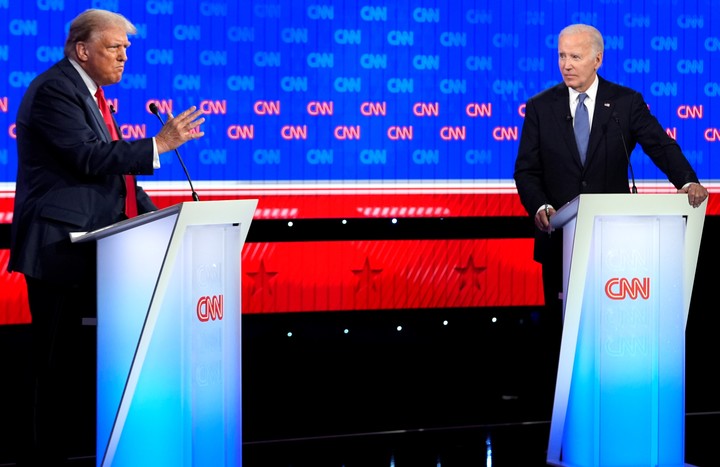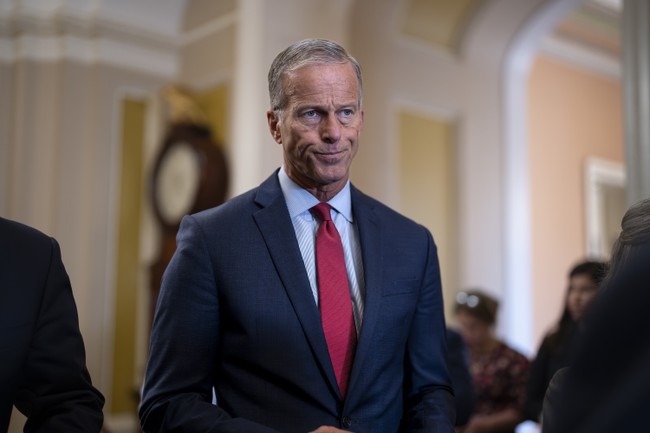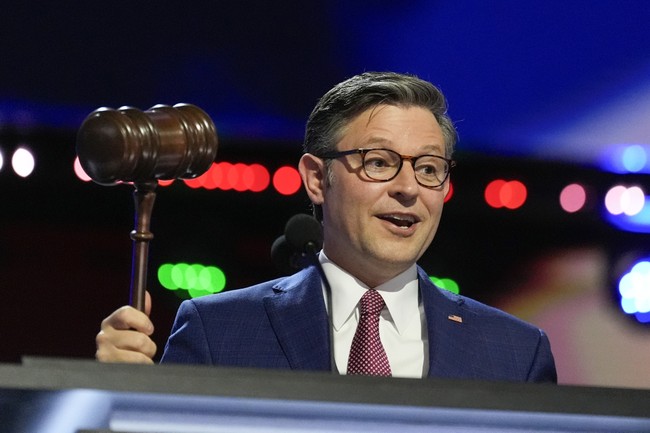Biden and Trump: A Crucial Meeting in the Making
In a remarkable turn of events, President Joe Biden is set to meet his successor Donald Trump, marking a significant moment in American political history.
Published November 12, 2024 - 00:11am

Image recovered from lapagina.com.sv
In an unprecedented and historic meeting, President Joe Biden is poised to welcome President-elect Donald Trump to the Oval Office for a pivotal postelection discussion. This encounter, scheduled for Wednesday at 11 a.m., not only signifies a notable moment in the continuity of U.S. democratic traditions but also marks a turning point in the political landscape of the United States.
Despite President Biden extending this traditional courtesy to Donald Trump, a custom that fosters the peaceful transition of power, it's noteworthy that Trump previously deviated from such norms in 2020, abstaining from hosting Biden following his electoral win. This particular meeting signifies a return to convention, underscoring the importance of maintaining democratic values, thereby restoring a semblance of bipartisan respect often missing in recent years.
The meeting comes in the aftermath of Trump's electoral victory over Vice President Kamala Harris, securing his re-entrance into the White House. Biden praised Trump's victory, offering his congratulations and expressing readiness for a serene and orderly transfer of authority. This effort is key to ensuring continuity in governance and highlighting Biden's dedication to the nation's democratic principles.
This transitioning period is not free of complexity, given Trump's controversial past and the backdrop of a sharply divisive political climate. His previous presidency was marred by two impeachment trials, adding layers of tension to the present scenario. Notably, the recent election cycle revealed a striking political rivalry that saw intense rhetoric and contentious exchanges, particularly during debates and public engagements.
This political milieu also underscores a broader narrative of resilience, a theme President Biden eloquently championed in his recent address to the nation. His steadfastness amidst adversity was captured in his assertion, Reversals are inevitable. Giving up is unforgivable. Therein lies a powerful message of perseverance that transcends the immediate political moment, reminding Americans of the enduring spirit and fortitude required to navigate such politically charged waters.
Furthermore, Biden's efforts to ensure a smooth transition are mirrored by Trump's immediate organizational endeavors. Among Trump's initial actions is the appointment of Susie Wiles, a key figure in his campaign, to the role of White House Chief of Staff, marking a significant milestone with her becoming the first woman to hold this strategic position. Trump's swift movements in shaping his incoming administration illustrate a key aspect of the transition, reflecting his determined approach to governance as he prepares to assume office.
Despite the overtures of cooperation and transition, underlying tensions persist, notably within Biden's Democratic cohort, concerning the broader implications of the election results. Figures like Senator Bernie Sanders have vocalized concerns over the Democratic party's trajectory, pointing to an emphasis on identity politics perceived as overshadowing critical economic issues pertinent to the working class. The electoral defeat, therefore, serves as a catalyst for internal reflection and strategic recalibration within the party.
Another layer to this transitional period involves ongoing electoral dynamics, as control over Congress remains uncertain. While Republicans express optimism about sustaining their majority in the House of Representatives, Democrats continue to aspire to reverse fortunes, eyeing possible gains that could shift legislative balance and impact the trajectory of Trump's forthcoming administration.
In sum, the scheduled meeting between Biden and Trump encapsulates a multifaceted tableau of political transition imbued with prospects of reconciliation, continuity, and the complex negotiation of divergent party agendas. This event stands as a testament to the resilience of democratic practices and heralds a future filled with both challenge and opportunity for American politics.







